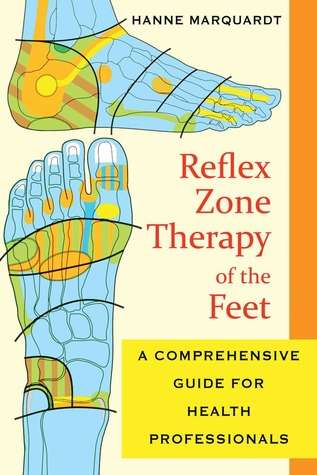Music can have a profound effect on both the emotions and the body. Faster music can make you feel more alert and concentrate better. Upbeat music can make you feel more optimistic and positive about life. A slower tempo can quiet your mind and relax your muscles, making you feel soothed while releasing the stress of the day. Music is effective for relaxation and stress management.
Research confirms these personal experiences with music. Current findings indicate that music around 60 beats per minute can cause the brain to synchronize with the beat causing alpha brainwaves (frequencies from 8 – 14 hertz or cycles per second). This alpha brainwave is what is present when we are relaxed and conscious. To induce sleep (a delta brainwave of 5 hertz), a person may need to devote at least 45 minutes, in a relaxed position, listening to calming music. Researchers at Stanford University have said that “listening to music seems to be able to change brain functioning to the same extent as medication.” They noted that music is something that almost anybody can access and makes it an easy stress reduction tool.
So what type of music reduces stress the best? A bit surprising is that Native American, Celtic, Indian stringed-instruments, drums, and flutes are very effective at relaxing the mind even when played moderately loud. Sounds of rain, thunder, and nature sounds may also be relaxing particularly when mixed with other music, such as light jazz, classical (the “largo” movement), and easy listening music. Since with music we are rarely told the beats per minute, how do you choose the relaxation music that is best for you? The answer partly rests with you: You must first like the music being played, and then it must relax you. You could start by simply exploring the music on this web page. Some may relax you, some may not. Forcing yourself to listen to relaxation music that irritates you can create tension, not reduce it. If that happens, try looking for alternatives on the internet or consult with Counseling Service staff for other musical suggestions. It is important to remember that quieting your mind does not mean you will automatically feel sleepy. It means your brain and body are relaxed, and with your new calm self, you can then function at your best in many activities.
Experiment now. Experience a “sound bath” and let the music carry you away
The links below each open relaxing musical selections in YouTube.
A Moment of Peace Meditation
Aneal & Bradfield, “Heaven and Earth Spirits” track from Life & Love). Lovely contemporary piano music with accompanying instruments and nature scenes.
Echoes of Time
C. Carlos Nakai from the Canyon Trilogy. Serene Native American flute music, with a picture of Nakai backlit by the sun at the Grand Canyon.
The Winding Path
Ken Kern from The Winding Path. Highly rated, beautiful piano music with accompanying instruments with pictures of exquisite flowers and plants.
Classical Indian Music for Healing and Relaxing
Gayatri Govindarajan, “Pure Deep Meditation” track. Lovely and rhythmic music played on the veena, the most ancient of the Indian plucked-instruments, with nature scenes.
Angels of Venice
Angels of Venice from Music for Harp, Flute and Cello. Classical with 3 instruments with nature pictures.
Earth Drum
“Spirit Vision,” (David & Steve Gordon. Serene and lovely contemporary Native American informed-drumming music utilizing Taos Log Drum and Incan Pan along with other instruments and ocean/forest nature scenes.
Buddha Spirit
Aneal & Bradfield from Light & Love. Reflective but strong contemporary music utilizing various instruments and occasional humming voices with colorful oscillating fractals
Spa Relaxing Music
Tranquil contemporary instrumental with piano and a fixed candle light.
Relaxation Music: 1-Hour Meditation Candle
Serene contemporary instrumental with piano and one flickering candle.
Sleep Deeply
Dan Gibson. Nature sounds and instrumental, tranquil sleep music.
Weightless
Marconi Union. The sounds on this video are carefully arranged harmonies, rhythms, and bass lines that help slow a listener’s heart rate, reduce blood pressure, and lower levels of the cortisol stress hormone.
In this article we’ll take a closer look at how singing can benefit your physical and mental health, and how to use signing as a form of therapy
In fact, there’s solid scientific evidence to prove that singing is, in fact, good for your body and your mind.
People love to sing. Whether or not they can carry a tune, people seem to understand that there’s something positive — something healthy — in the act of raising their voices in song.
Decades of research has shown that singing individually and in groups is good for you on many levels.
Here, according to science, are 10 key benefits of raising your voice in song.
1. Relieves stress
Singing appears to be a stress-reliever. A 2017 study measured the amount of cortisol, the stress hormone, in participant’s saliva before and after they sang.
Researchers in that study found that the amount of cortisol was lower after singing, an indication that people felt more relaxed after they’d belted out a tune.
They also found singing reduces stress levels whether the participants were singing in a group or by themselves.
There’s a small catch, though: Cortisol only goes down if you’re singing in a place that doesn’t make you anxious. A similar 2015 study tested salivary cortisol levels after a singing performance, finding that cortisol levels went up in this scenario.
2. Stimulates the immune response
There’s some evidence that singing may boost your immune system and help you fight off illnesses.
A 2004 study compared the effects of singing with the effects of simply listening to music. In two separate sessions, research subjects either sang or listened to music.
Those who sang showed higher levels of immunoglobulin A, an antibody your body secretes to help you fend off infections. Listening to music (without singing along) reduced stress hormones but didn’t stimulate the body’s immune system.
3. Increases pain threshold
When you sing in a group, whether it’s a large choir or a smaller group, the act of collective singing causes your body to release endorphins. This hormone can help promote positive feelings, and even change your perception of pain.
A 2012 study found that singing, drumming, and dancing in a group triggers the release of hormones that raise your pain tolerance in ways that just listening to music doesn’t.
Researchers note that the feelings of social connection, rather than the music itself, seems to be behind the boost in pain tolerance.
4. May improve snoring
Regular singing may change the way you breathe, even when you’re not singing. Researchers in a 2008 study interviewed the spouses of choir members, along with the spouses of people who don’t sing.
The researchers found that significantly fewer choir members snored. This led them to recommend regular singing as a potential treatment for snoring.
Studies have also shown that people who play wind instruments also snore less than the general population.
These findings have prompted some experts to suggest that singing and playing wind instruments might be helpful for people with obstructive sleep apnea (OSA).
5. Improves lung function
Because singing involves deep breathing and the controlled use of muscles in the respiratory system, it may be beneficial for certain lung and breathing conditions.
Studies have shown that the breathing techniques used with singing may offer benefits for people with the following conditions:
While singing doesn’t treat or cure any of these conditions, you may benefit from gaining strength in your respiratory muscles.
Singing also increases the amount of oxygen in your blood, research shows. In addition to the pulmonary benefits, singers also experience improved mood and a greater sense of social connection.
6. Develops a sense of belonging and connection
When you sing together with others, you’re likely to feel the same kind of camaraderie and bonding that players on sports teams experience.
In one 2014 study involving 11,258 schoolchildren, researchers found that children in a singing and musical engagement program developed a strong sense of community and social inclusion.
In a 2016 study involving 375 adult participants, researchers found that people who sang together in a group reported a higher sense of wellbeing and meaningful connection than people who sang solo.
One of the neurochemicals released when people feel bonded together is oxytocin, also known as the love hormone.
Spontaneous, improvised singing causes your body to release this feel-good hormone, which may help give you a heightened sense of connectedness and inclusion.
7. Enhances memory in people with dementia
People with Alzheimer’s disease and other types of dementia experience a gradual loss of memory. Studies have shown that people with these conditions were able to recall song lyrics more easily than other words.
In one singing study by the Alzheimer’s Foundation, participants said it was “nice to be able to remember something.”
However, the singers found they remembered more than just the lyrics. For some, singing familiar songs suddenly brought back life memories they’d forgotten, too.
Researchers found that singing songs learned at a younger age caused a spontaneous return of autobiographical details for many people.
8. Helps with grief
Singing in a group doesn’t just help you with physical pain; it may also help with the emotional pain you feel after you’ve lost someone you love.
In a 2019 study conducted among people dealing with grief, researchers found that for those who sang in a choir, depression symptoms didn’t get worse over time and their sense of wellbeing remained stable.
In fact, the choir singers felt a gradual improvement in their self-esteem during and after the 12-week study. Those in the control group who didn’t participate in the singing intervention didn’t report this benefit.
Researchers concluded that group singing may be a good option for people who need additional support during a time of grief.
9. Improves mental health and mood
A 2018 study done in the United Kingdom evaluated 20 people in a singing program known as The Sing Your Heart Out project. The participants included people with mental health conditions, as well as the general public.
Researchers found that the participants reported improvements in their mental health, mood, sense of well-being, and feeling of belonging as a result of these singing workshops.
10. Helps improve speaking abilities
Decades ago, scientists began researching the effects of singing among people who have a hard time with speech due to a neurological condition.
To date, researchers have found that singing improves the speaking ability for people with:
Singing stimulates multiple areas of the brain at the same time. This may enable people with an impairment in one part of the brain to communicate using other areas of their brain.
Singing can also prolong the sounds in each word, which may make it easier to pronounce them.
Singing also makes it easier to incorporate hand-tapping, a method that can help people maintain speaking rhythms that are otherwise challenging.
Can you sing safely in the era of COVID-19?
Because SARS-CoV-2, the coronavirus that causes COVID-19, is known to spread through respiratory particles, public health officials have cautioned against events where people sing collectively.
Researchers are currently advising organizers to keep rehearsals short, small, and ideally, remote. Larger, longer events are likely to be problematic for now.
Using masks, outdoor venues, and physical distancing may help, but are not a guarantee that the virus causing COVID-19 won’t spread when people meet to sing in person.
Research on this relatively new phenomenon is being continually updated.



